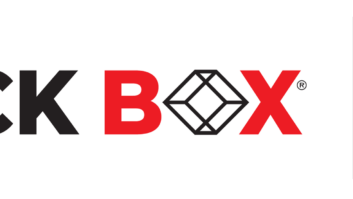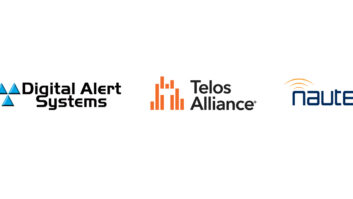The Three Waves of Security Revenue
Apr 20, 1997 12:00 PM,
Lee Borland
Anytime you can attack sales with more than one wave of “soldiers,” you’re increasing your chances of increasing your profits. Which is one reason selling security can be like a mass attack on profitability. For one thing, security systems can be one prong of a multiprong assault; many integrated systems companies sell security because their sound-system customers also need security and may be asking them to provide it. Providing more than one service to the same customer is true relationship building. However, even within security sales, you have three “waves” of revenue: three opportunities to gain revenue from the same customer. Two of these come as the result of the agreements you sign with your security customer to provide long-term services that generate recurring monthly revenue (RMR). Financially, it does not get much better than this.
The three “waves” of security revenue are:
* Sell and install the system (and get paid).
* Provide monitoring service from a central station (and get paid).
* Provide a service agreement or a periodic inspection agreement (and get paid).
Recurring monthly revenueRMR is the number one reason to be in the security business. Why? These are the major benefits:
* You are paid in advance.
* Long term (three to seven years) is locked in because you sign specific security agreements or contracts with your customer for each service.
* You have guaranteed cash flow. When you sell your company, the buyer will pay you a multiple (e.g. 30+/-) for the RMR.
* You may be able to take it to the bank as collateral for a loan or a line of credit.
* Ongoing revenue from each client provides excellent cash flow (not just revenue from a one-time installation sale).
* Represents payment for relatively easily provided ongoing services.
* Assures a long-term relationship. You have clients and friends, not customers. You will be on the premises providing service over the term of the agreements.
Telephone and cable companies, satellite service providers (such as USSB and Direct TV) and alarm companies all know the exceptional value of RMR. For a small company, selling security services is one of the least cost-intensive ways to get the benefits of this triple revenue flow. In fact, if you look at it from your company’s standpoint, one way to describe your alarm company is that you are in the “paper business”; the “paper” is the agreements in the company files that provide the RMR revenue. (This is not something you tell your customers, but it makes it easy to understand why security is a good business to be in.) All businesses have inventory, assets, equipment and good will; to those, an alarm company can add the ongoing recurring revenue.
Extra profitAlmost all alarm companies provide central monitoring to their customers. Most pay a small monthly fee to a third-party-owned central station for this service. Some larger security companies own their own central station. In either case, the end user pays a monthly charge, in advance, for, say, $20 per month for the central monitoring. The billing frequency can be monthly, quarterly, semiannually or even annually; I highly recommend that it be no more often than twice a year (semiannually). There are many reasons, but the main one from your standpoint is the excellent cash flow.
Security revenue is often not pursued, even by successful, long-standing alarm companies. It takes some work and time to implement, but it is well worth it. Think of it as a plan to double your recurring revenue. I wrote a “how-to” publication on that subject, published by Security Press, called Double Your Recurring Revenue! How to Sell Service Agreement, that provides a step-by-step plan to price, sell and implement ongoing, scheduled service and inspections. I recommend three choices for ongoing service using a “good, better, best” approach.
Good” service is on-call service: Clients call you for service, and you invoice them time, material and mileage. “Better” service is a preventative maintenance agreement (PMI), which provides one regularly scheduled performance inspection per year at a reduced cost to the client. “Best” is the service agreement. It provides your client with the best ongoing service at the least cost, and it provides predictable, profitable income for you.
Selling security systems is different than selling many other products or services. The “want” factor is not as evident, but the long-term relationship and ongoing RMR are worth the time and effort it takes. The reward is three separate and distinct revenue sources from the same customer.









